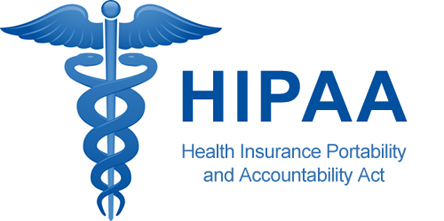The Health Insurance Portability and Accountability Act (HIPAA) is a significant piece of legislation that has dramatically shaped the way healthcare organizations approach the management of sensitive patient data. Compliance with HIPAA regulations is critical to ensuring the privacy and security of protected health information (PHI), and it is imperative for healthcare providers to establish the necessary safeguards to maintain compliance. In this extensive exploration, we will delve into the numerous benefits that Managed IT Service Providers (MSPs) can provide when it comes to facilitating and maintaining HIPAA compliance for healthcare organizations.
A Brief Overview of HIPAA and its Significance
The Health Insurance Portability and Accountability Act, passed by Congress in 1996, was a watershed moment in the world of healthcare data management. This sweeping legislation aimed to address the growing need for a consistent and rigorous framework to safeguard the privacy and security of sensitive patient information. As a result, HIPAA established a set of rules and regulations governing the access, storage, and transmission of PHI, which is broadly defined as any individually identifiable health information.
The Challenge of Compliance
For many healthcare organizations, achieving and maintaining HIPAA compliance can be a daunting and complex endeavor. The intricate web of regulations and requirements necessitates a deep understanding of the nuances involved, as well as the ability to adapt to the ever-changing technological landscape. This challenge is further exacerbated by the fact that non-compliance can result in severe financial penalties and reputational damage, making it essential for healthcare providers to have a robust strategy in place to ensure compliance.
Enter the Managed IT Service Provider
In response to the growing need for expertise in managing the complexities of HIPAA compliance, Managed IT Service Providers have emerged as an invaluable resource for healthcare organizations. These specialized service providers offer a comprehensive suite of services designed to address the various aspects of HIPAA compliance, from network security and data storage to employee training and ongoing monitoring. The following sections will delve into the numerous benefits that MSPs can provide in the quest for HIPAA compliance.
- Expertise in Healthcare IT and HIPAA Regulations
One of the most significant advantages of partnering with a Managed IT Service Provider is their extensive knowledge of both healthcare IT and HIPAA regulations. MSPs specializing in healthcare have a deep understanding of the intricacies involved in achieving and maintaining compliance, allowing them to provide tailored solutions that address the unique challenges faced by healthcare organizations. This expertise is essential in navigating the complex landscape of HIPAA regulations and ensuring that all aspects of compliance are addressed. - Robust Security Solutions
HIPAA compliance requires healthcare organizations to implement rigorous security measures to protect sensitive patient data. MSPs can offer a comprehensive suite of security solutions that encompass all aspects of data protection, including network security, data encryption, and secure data storage. By leveraging cutting-edge technologies and best practices, MSPs can help healthcare providers establish a robust security infrastructure that effectively safeguards PHI and ensures HIPAA compliance. - Ongoing Monitoring and Maintenance
HIPAA compliance is not a one-time achievement but rather an ongoing process that requires continuous monitoring and maintenance. Managed IT Service Providers can provide proactive monitoring of healthcare organizations’ IT systems and infrastructure, identifying potential vulnerabilities and addressing them before they can be exploited. This ongoing vigilance is crucial in maintaining compliance and protecting sensitive patient information from unauthorized access. - Employee Training and Education
A critical component of HIPAA compliance is ensuring that employees are adequately trained in the handling and protection of PHI. MSPs can provide comprehensive training programs that cover essential aspects of HIPAA regulations, as well as practical guidance on best practices for safeguarding patient data. This employee education is vital in fostering a culture of compliance and reducing the risk of data breaches resulting from human error. - Streamlined Vendor Management
Healthcare organizations often rely on multiple vendors for various aspects of their operations, and managing these relationships can be time-consuming and complex. Ensuring that all vendors are HIPAA compliant is a crucial aspect of maintaining overall compliance for healthcare providers. Managed IT Service Providers can assist in streamlining vendor management by assessing and monitoring vendor compliance, as well as coordinating communication and collaboration between different vendors. This centralized approach can result in increased efficiency, reduced risk, and ultimately, a more seamless path to HIPAA compliance. - Disaster Recovery and Business Continuity Planning
HIPAA regulations require healthcare organizations to have a comprehensive disaster recovery and business continuity plan in place to ensure that patient data is protected and accessible in the event of a disaster or system failure. Managed IT Service Providers can help design, implement, and maintain these plans, ensuring that healthcare providers are prepared to respond effectively in the face of unforeseen circumstances. By partnering with an MSP, healthcare organizations can have peace of mind knowing that their sensitive patient data is safeguarded and that they are equipped to maintain compliance during a crisis.
In summary, the benefits of partnering with a Managed IT Service Provider for HIPAA compliance are manifold. From their expertise in healthcare IT and HIPAA regulations to their ability to provide robust security solutions, MSPs offer a comprehensive approach to addressing the challenges faced by healthcare organizations in achieving and maintaining compliance. By leveraging the services of a Managed IT Service Provider, healthcare providers can focus on delivering quality patient care while leaving the complexities of HIPAA compliance to the experts.



